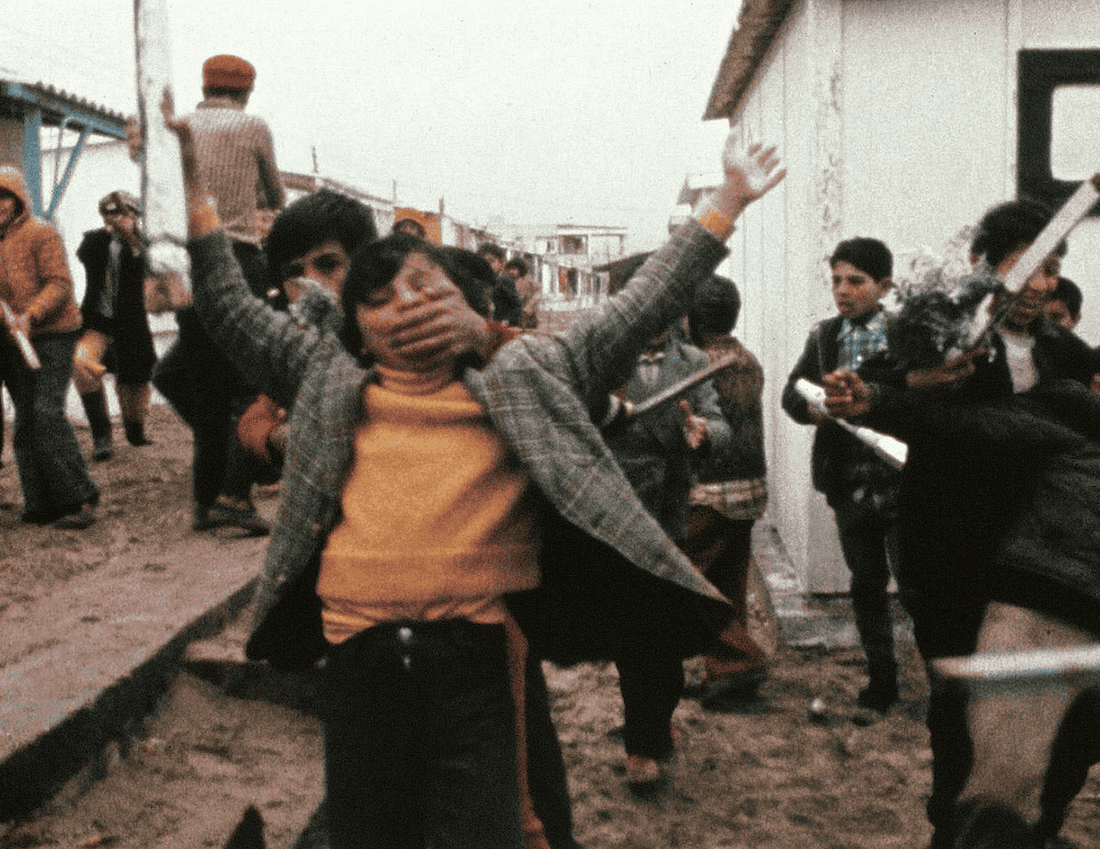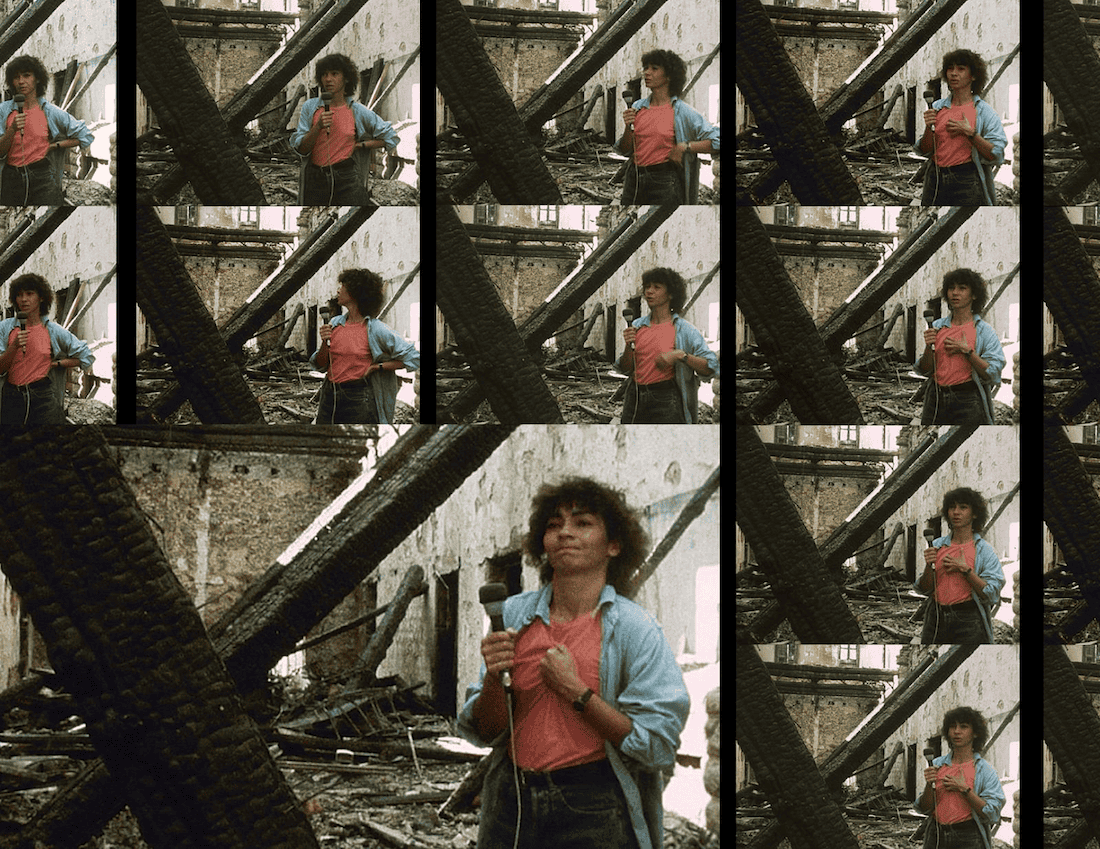Jocelyne Saab, the pioneering and prolific filmmaker, was born in Lebanon and trained as a war reporter for French television, becoming one of the few women to produce political documentaries in the Middle East. During the Lebanese civil war, Saab
directed a trilogy of films — Beirut, Never Again (1976), Letter From Beirut (1978), and Beirut, My City (1982) — depicting the ravages of Zionist occupation. “Everything was suddenly annihilated,” she recalled in a 2013 interview with Olivier Hadouchi, excerpted below. “Our family’s domicile, off the map, gone from the city, a mass of ruins.”
In Zones de Guerre (2018), a collection of her photographs and film stills, we see Saab in front of and behind the camera. She is unconcerned with maintaining distance between herself and her subject; she, too, is subjected to the story she tells. She is unconcerned with the mirage of objectivity — it doesn’t exist. This is where she lives, this is where she is from, this is — as she says herself — an act of resistance.
Olivier Hadouchi: What was your usual pattern during the day-by-day bombings during the siege in 1982?
Jocelyne Saab: To go out to film, to witness, as soon as the planes had passed over. To buy boxes of cheese like ‘Laughing Cow,’ to find gasoline and water. To go get dinner from the two or three restaurants that were open. It was like we were telling ourselves a story. We created for ourselves the illusion that we were continuing to live a “normal” life. To save people, to film, to find what remained, to find out what was going on, to assure ourselves that others were still alive. I had my car and I would spend every day at the headquarters of the PLO to stay informed about the situation. In the city there was hardly enough to eat, the misery of extreme poverty and hunger was pervasive. Among our group, there were about fifty artists and intellectuals. One of us was assassinated. As we were leaving a restaurant, a car went into a fishtail spin, some guys came out and started shooting — our friend was killed in a barrage of machine-gun fire because he had been distributing water to the entire city under siege.
Hadouchi: Despite the incessant bombings during the siege, you went out all the same?
Saab: We went out in the evenings. We were crazy. We went to one of the restaurants or to the Commodore Hotel, where journalists hung out. During the day, I got around on a moped. The Palestinian resistance made arrangements so that we could work and continue to witness as journalists. They knew who was who, and we were essential to them, so we were able to stay on the move. I went to get gas every day. We moved house four times during the siege. The Israeli army wanted to assassinate Arafat, thinking that they could get to him if they went on destroying entire buildings. Often, dozens of dead and wounded would turn up but there was no trace of the PLO leader. On one occasion an entire building was destroyed by a bomb, right next to ours.
Hadouchi: What an extraordinary period for you and your friends.
Saab: If you ask people who lived through the siege, they’ll all tell you that this was the most beautiful period of their lives. At that moment, reasons to live multiplied a thousand times over, because if you’d chosen to be there, to stay put, you believed in your own fight for the cause. This was an act of resistance. “By what right do you come and occupy Beirut and Lebanon?” This was the question that we were posing, to the entire world.

Excerpted from a selective retranscription of the many interviews Olivier Hadouchi conducted with Jocelyne Saab between 2010 and 2013. Translated from French into English in 2013 by Christina McPhee. Originally published by criticalsecret.net in 2013.


